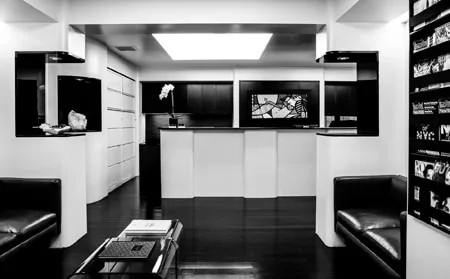As the COVID-19 pandemic exacerbates across the nation, numerous spots of business – schools, offices, the New York stock exchange, theaters, wellness studios, and clothing and beauty stores, have all been requested to shut down temporarily. The seriousness of the outbreak has become clearer and people who had scheduled appointments for cosmetic surgery have bad news as the chances of it actually happening are slim to none (realself.com). The American Society of Plastic Surgeons (ASPS) reported that, in accordance with a new CMS recommendation, all elective surgeries, non-essential medical, surgical and dental procedures will be delayed during the COVID-19 outbreak. According to the recommendation, all plastic surgeons should cease providing elective or non-essential services.

Declared as a global emergency on January 31, 2020, and announced as a pandemic on March 11, 2020 by the World Health Organization (WHO) because of high mortality rate, the SARS-CoV-2 or coronavirus that originated in Wuhan City, China, causes severe respiratory disease. With over 82,400 cases (according to Johns Hopkins University) and more than 1000 deaths from the virus reported in the US at the time of this writing, this outbreak is impacting all sectors of the economy. Since no immunizations are available as of now to prevent the coronavirus infection, the only prevention approach is social isolation. This means that people need to stay at home, avoid social gatherings and crowds. This also means staying away from hospitals, clinics, and other types of medical facilities.
With the COVID-19 statistics becoming increasingly severe, more hospitals and healthcare systems are heeding the call of the Surgeon General as well as various local legislatures by postponing nonessential surgeries (www.realself.com). Health experts are urging surgeons to postpone the nonessential services to reduce transmission risk. COVID-19 is commonly spread by asymptomatic carriers who may unwittingly infect nurses, doctors, or even other patients in the waiting room. Emerging evidence also suggests that certain surgeries such as nasal airway procedures pose higher risks for the healthcare practitioner. The viral load in the nose is the highest and instrumentation in this area would increase risk of infection for the otolaryngologist. Even the N95 masks don’t seem to be enough protection.
Another important concern is the scarcity of even simple things like gowns and masks. Moreover, space too is increasingly at a premium, where hospitals may need to convert operating rooms into intensive care units (ICU). With such high stakes, facilities should focus on conserving the needed disposable medical supplies and routing them to hospitals where they are most needed.
ASPS strongly recommends that members provide only urgent or emergent care, which includes both office-based surgical procedures and care as well as those performed in an ambulatory surgery center or hospital-based setting. “Urgency” is determined by physician judgment and must always take into account individual patient medical and social circumstances.
However, patients can get a preliminary opinion regarding their eligibility for a particular aesthetic procedure or for certain instructions using virtual consultations. Available in leading AAAASF-accredited plastics surgery practices, virtual consultations allow patients to enjoy the luxury of a one-on-one educational and informative consultation with non-physician staff members conveniently from their own homes. You can more information about the plastic surgery procedure you wish to undergo.
We can expect the pace of essential and nonessential surgeries to return to normal after the pandemic. Till then – stay home, stay safe!
Read our blog on “How Virtual Consultation Makes Cosmetic Surgery More Accessible“
